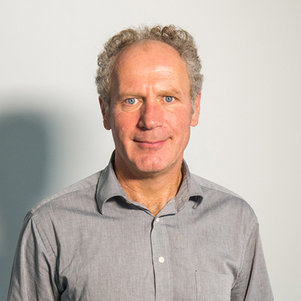Gravity grant awarded to research on brain interactions
To understand how the brain works, we need to understand how each part, from neuron to brain region, interacts with the rest of the brain and with the outside world. Thanks to a grant of 21.9 million euros from the Gravity program, from the Ministry of Education, Culture and Science, a national consortium can now conduct further research into this. The goal of this research is to develop principles, devices and methods to take these interactions into account and thus understand more about brain disorders, as well as moods, emotions and compulsions.
The research project is called 'The Dutch Brain Interfaces Initiative' and is led by researchers from Radboud University Nijmegen. TU Delft will contribute to the development of computer models, and microfabrication technology for the development and validation of closed-loop control for neural prostheses. These prostheses can give us back lost senses and control, enabling us to bypass injuries and treat an unprecedented range of brain disorders, restoring a better quality of life for deaf, blind, paralyzed and mentally ill people.
Ultimate applications of the multi-year research include the use of Deep Brain Stimulation on patients with motor and psychiatric disorders, the development of Brain-Computer interfaces that enable communication for people who cannot speak and the deployment of visual implants for the visually impaired and blind. Frans van der Helm and Wouter Serdijn are the leaders of the Delft research project. Frans van der Helm: 'The human brain is the ultimate technical challenge for engineers. It is great to be able to use our technical background and technical capabilities to contribute to a better understanding of, and better interaction with, the human brain.'
The Dutch Brain Interfaces Initiative is the combination of a platform with computer, software and hardware elements, aimed at facilitating closed-loop manipulations in the long term, and brain monitoring in a naturalistic environment, with a neuroscience research program with 3 main objectives: to increase the understanding of the general principles of brain dynamics, to develop strategies to influence, restore or improve those dynamics and the cognitive function they support, and to understand the neural basis of behavior under naturalistic conditions.
The consortium is broad and diverse, drawing on expertise in Dutch neuroscience, neurotechnology and computer science from Radboud University, the Netherlands Institute of Neuroscience, TU Delft, ErasmusMC Rotterdam, University of Utrecht, University of Amsterdam, TU/Eindhoven and University of Twente. The consortium is a spin-off of the Neurotech.NL initiative, the network of Dutch neuroscientists and neurotechnologists that focuses on conducting cutting edge fundamental research and translating it into solutions that can benefit society.


